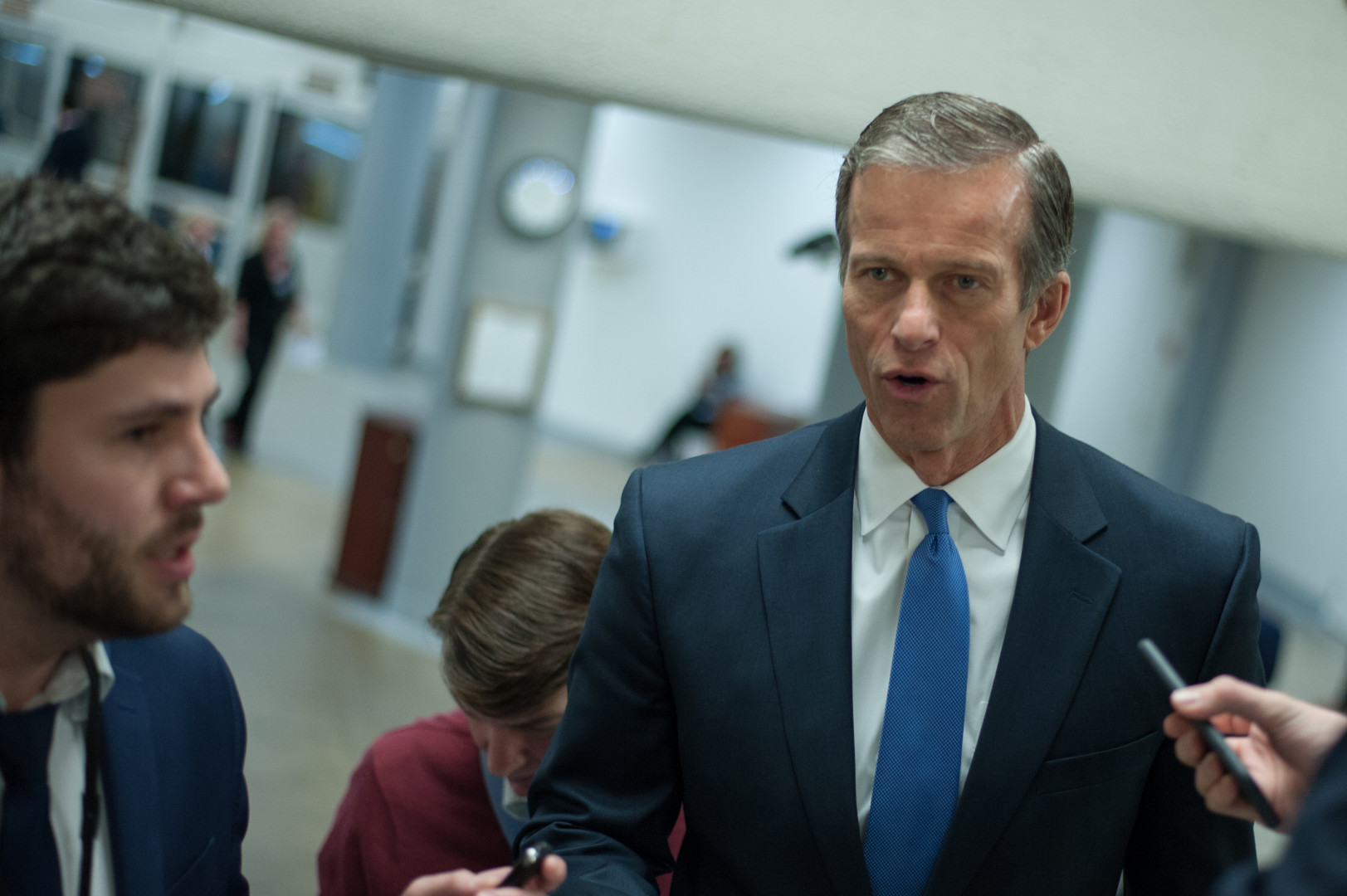The Senate Commerce Committee’s work on a wide-ranging mobile broadband and airwaves bill won’t be knocked off course by the showdown between Democrats and Republicans about a new Supreme Court nominee in the Senate, according to a committee aide.
The debate about whether the Senate should move to confirm a Supreme Court nominee to replace the late Justice Antonin Scalia threatens to split the already divided chamber of Congress. With some Democrats quietly suggesting that much of the Senate’s normal business would halt if Republicans don’t act, the fate of lots of niche bills is in question.
Some committees, at least, plan to stay on course. The Senate Commerce Committee will continue to press forward on a massive spectrum bill, the MOBILE NOW Act, introduced by the committee’s chairman, Sen. John Thune (R-S.D.).
“I see no reason that any nomination would affect consideration of the bill,” Senate Commerce Committee Communications Director Frederick Hill said in an email.
A simple statement like this from the committee is important because it signals that members want to have legislation ready for the floor should an opportunity arise. In other words, they aren’t giving up on this year just yet.
Hill added that the measure, designed to free up airwaves owned by federal agencies, could see committee action before the Federal Communications Commission’s massive incentive auction set to begin in late March.
The FCC’s auction is a perfect springboard for the bill. The auction will take place in two parts. First, the agency will buy large swaths of airwaves owned by broadcast stations who are willing to move to other spectrum bands. Second, the FCC will subsequently sell them to wireless providers to help those carriers beef up their mobile data networks.
These airwaves are the backbone of mobile data networks. The FCC has targeted broadcasters using frequencies that are especially attractive to wireless network providers because these airwaves can carry wireless signals long distances and penetrate deeper into buildings.
The bill targeting federal spectrum has been a pet project for Thune for a while. Last year, he placed an earlier version on the committee agenda for a vote, but he was then forced to pull it after the administration balked. There was talk that it also needed time to gather more support from Democrats.
The work has paid off. Thune reintroduced the bill with his Commerce Committee ranking member, Sen. Bill Nelson (D-Fla.). Upon its introduction on Feb. 11, Nelson said, “Senator Thune and I have worked hard to meet consumers’ desire for cutting-edge wireless services, while at the same time protecting critical national security operations.”
Nelson added that it “will help ensure the U.S. maintains its global leadership in advanced wireless services, including 5G.”
Thune said in December that national security was a major area of discussion between him, the Senate Armed Services Committee, and the Obama administration. He didn’t elaborate on the administration’s specific concerns at the time, but it’s no secret that the Department of Defense holds a lot of valuable spectrum that it may be loath to give up.
The DOD’s spectrum would be immediately up for grabs under the new version of the bill. The measure would require the Commerce Department to submit a report to Congress suggesting how to incentivize federal agencies to relinquish or share their spectrum for commercial use.
That provision reflects an adjustment from Thune’s original draft, which would have offered agencies up to 25 percent of the revenue made from selling their airwaves. At the time, some expressed skepticism this would be an effective strategy. Some internet advocates say the federal government should clear off all its spectrum. But that’s probably unrealistic.
In the original bill, agencies would have needed to clear off all of their spectrum to receive the 25 percent share of the sale. If they didn’t, the most they could get was 5 percent of the profits.
There are bipartisan reasons to move the legislation. The widely supported ‘Dig-Once’ policy is also in the in the bill. Some members of the House have been working to advance the idea in a separate bill for years. The provision would encourage federal agencies to put policies in place that require the installation of broadband piping when highways are torn up for federally funded projects.
Elsewhere, the bill would create a central and online database of federally owned property assets that private companies could use for broadband deployment.
Because Thune waited to introduce the bill with committee’s Democratic leader, it could see a relatively easy time in committee. Committee members are likely to use a March 2 hearing to vet some of the proposals within the MOBILE NOW Act. That’s the day all five FCC commissioners are scheduled to testify before the committee.

